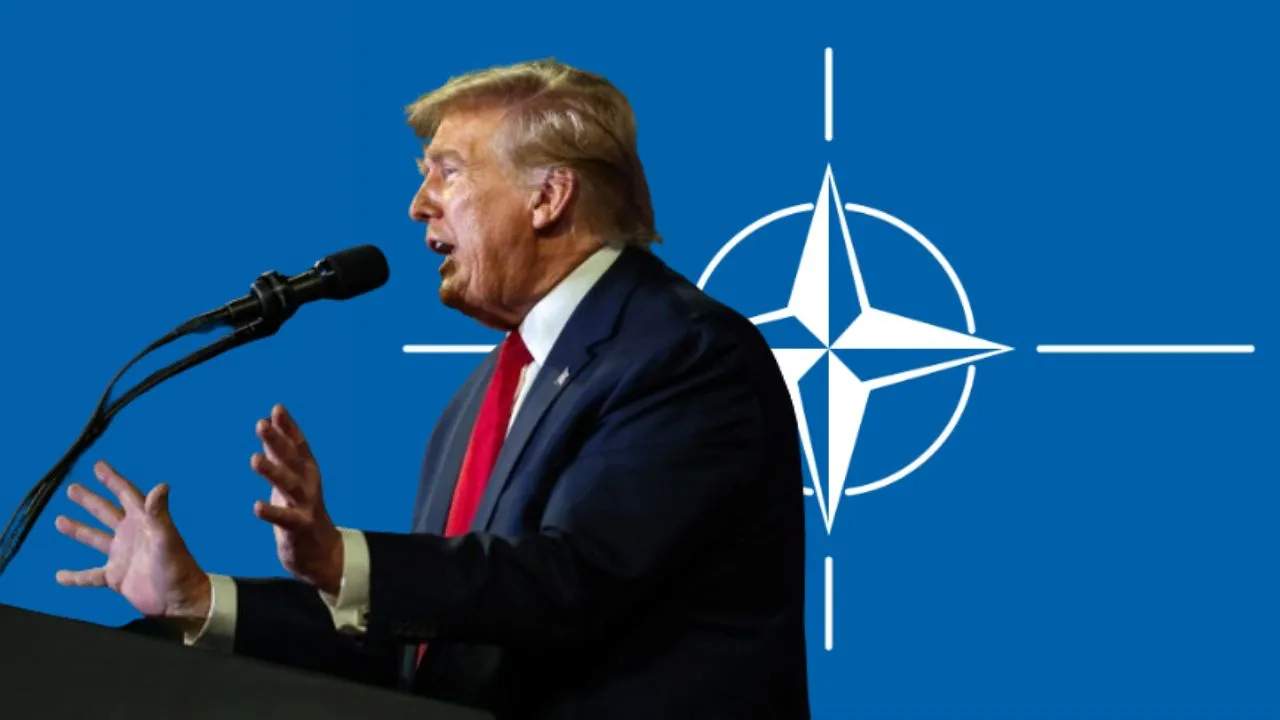As Trump’s NATO stance sends shockwaves through the global community, find out what experts are saying about the implications for regional security and the stability of transatlantic alliances.
Brief Summary
- Former President Trump sparked controversy by suggesting he would support Russian aggression towards NATO countries that fail to meet defense spending obligations.
- Trump’s remarks underscore tensions within the Republican Party regarding NATO and U.S. foreign policy commitments, contrasting with President Biden’s more conciliatory approach.
- White House spokesperson Andrew Bates condemned Trump’s comments as “appalling and unhinged,” emphasizing the importance of maintaining solidarity with NATO allies.
- Trump’s stance raises concerns among European leaders about the future of transatlantic relations and U.S. foreign policy priorities, as well as the potential implications for global security dynamics.
During a recent rally in South Carolina, former President Donald Trump stirred controversy by suggesting that he would support Russian aggression towards NATO countries that fail to meet their defense spending obligations.
Trump recounted a conversation with a leader of a “big country,” where he purportedly indicated that if NATO members didn’t pay their “fair share” for defense, he would not guarantee their protection and would even encourage Russian actions against them.
Trump’s remarks come at a time of heightened tensions between Russia and NATO, particularly in light of Russia’s ongoing war in Ukraine and concerns about potential further aggression. NATO, established in 1949 to provide collective defense against the Soviet Union, operates under the principle of Article 5, which stipulates that an attack on one member is considered an attack on all.
Trump has a history of criticizing NATO and pressuring member states to increase their defense spending. He has reportedly threatened to withdraw the United States from the alliance if member nations fail to meet the target of spending 2% of their GDP on defense.
While President Joe Biden has taken a more conciliatory approach towards NATO, signing a defense bill that prevents unilateral withdrawal from the alliance, Trump’s recent comments underscore lingering tensions within the Republican Party regarding NATO and U.S. foreign policy commitments.
White House spokesperson Andrew Bates condemned Trump’s remarks as “appalling and unhinged,” emphasizing the importance of maintaining solidarity with NATO allies and standing up against aggression. Bates reaffirmed President Biden’s commitment to bolstering American leadership and protecting national security interests.
Trump’s suggestion of encouraging Russian aggression towards NATO allies has raised concerns among European leaders and experts. Some worry that Trump’s approach could signal a shift towards abandoning traditional allies in favor of closer ties with Russia, potentially destabilizing the region and undermining transatlantic alliances.
The failure to pass a bipartisan border deal, which Trump celebrated at the rally, has also drawn criticism for its potential implications on national security and foreign policy. Reports suggest that Trump sought to use the crisis at the southern border as a political tool, despite the potential consequences for military aid to Ukraine and the broader fight against Russian aggression.
As Europe grapples with the evolving threat posed by Russia, Trump’s comments have reignited debates about the future of transatlantic relations and U.S. foreign policy priorities. While some observers view Trump’s stance as part of a broader strategy to renegotiate relationships with traditional allies, others express concern about the implications of abandoning longstanding alliances in favor of closer ties with adversaries like Russia.
In light of these developments, the international community will be closely monitoring the trajectory of U.S. foreign policy and its impact on global security dynamics.
More from Wisdom Imbibe:

